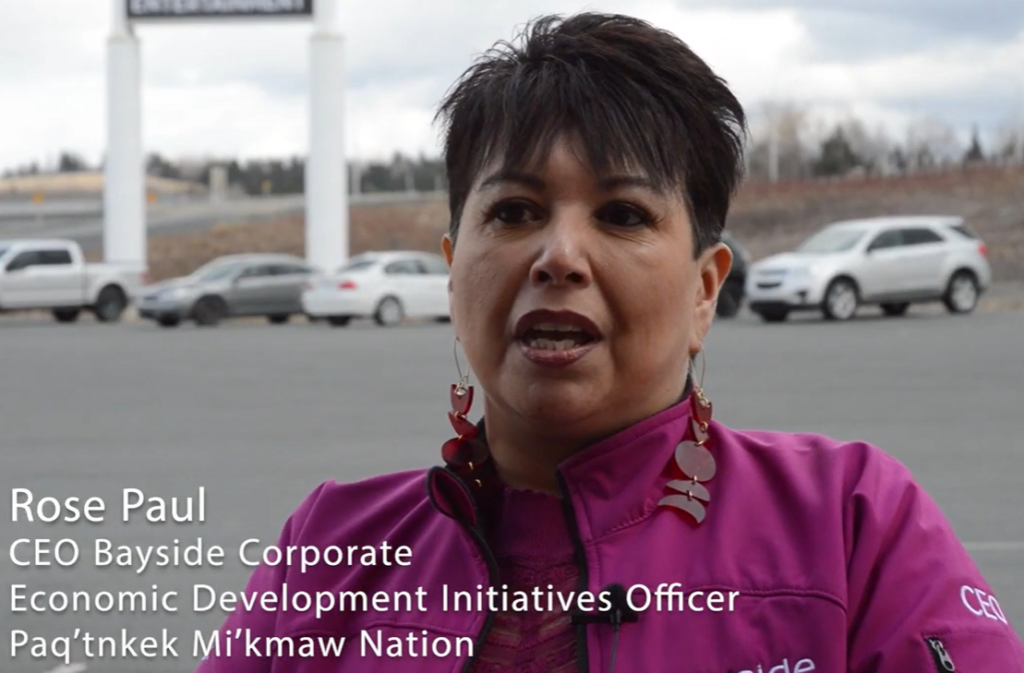When the topic of First Nations self-determination comes up – infrastructure isn’t usually what comes to mind. However, a number of Indigenous leaders are working to change that. They are the people guiding the development of a new organization: the First Nations Infrastructure Institute (FNII), and they say good infrastructure is central to enabling First Nations self-governance.
The institute’s mission is to provide the skills and processes necessary to ensure First Nation communities and Indigenous organizations can efficiently and effectively plan, procure, own and manage infrastructure on their lands. The premise is that high-quality public infrastructure is critical to the health and sustainability of communities – that the current system doesn’t serve First Nations well – and that an Indigenous-led approach is required.
“Infrastructure is a precursor to economic development. We need water, we need roads, we need health centres. If we are going to attract tourism or business to our lands – we need [all] that,” said Ernie Daniels, President and CEO of the First Nations Finance Authority.
Daniels made his comment at last fall’s First Nations Leading the Way 5 conference, which was held in Winnipeg on Treaty 1 territory for delegates from Nations that have opted into the First Nations Fiscal Management Act (FMA) or Land Code.
Called Economic Resilience and Innovation, the conference showcased the achievements of First Nations in using First Nation-led agreements and legislation to improve their economies through greater fiscal independence, improved financial management, debenture financing, and sound land governance.
Delegates who attended the FNII panel learned that the institute will bring together all of those elements to build on the success – and complement the services – of the three institutions already set up under the FMA:
• the First Nations Financial Management Board
• the First Nations Finance Authority
• the First Nations Tax Commission
These organizations provide services and expertise to more than 300 First Nations across Canada.
The First Nations Infrastructure Institute was conceived in 2017 to create a new way to fix the infrastructure gap in First Nations communities across Canada. Studies have estimated that the gap – which is the difference between Indigenous and non-Indigenous communities in Canada – is in the billions of dollars.
Members of the institute’s Development Board say a new way of delivering First Nations infrastructure is needed because the current process creates infrastructure that takes longer to build, costs more, and has shorter operational lifecycles than comparable infrastructure developed by other governments.
“Every First Nation knows how slow it is,” said Allan Claxton, chair of the FNII Development Board and BC representative (he is a member of the Tsawout First Nation council and previously served the Nation as elected Chief).
The Development Board is guiding the institute until it is formally established through amendments to the First Nations Fiscal Management Act. Work is already underway, however, and Claxton is enthusiastic about the possibilities ahead.
“With a First Nations group like FNII, we have the people we can talk to [about infrastructure projects], people that will come into our communities with technical support,” he said. “They have a real heart for our Nations, and can develop a team that can move things forward way quicker than ISC [Indigenous Services Canada] ever did. This is the stuff I’ve dreamed about in my 20 years as chief.”
FNII is working with two Nations in what are called “proof-of-concept” projects. This term refers to pilot projects intended to demonstrate if a concept is feasible. Leading the Way delegates learned more about these two projects during the FNII panel, moderated by Development Board member David Crate (Chief Fisher River Cree Nation, Manitoba).
Jason Henry (then Chief of Chippewas of Kettle and Stony Point, Ontario) described the wastewater project his community has been working on with the institute.
“FNII sat down with our leadership and staff to look at the technical options, the procurement options, and the financial options. [They] looked at our CCP [comprehensive community plan] and also reached out to our community to talk about the project,” he said, explaining that FNII advisors filled a gap in technical capacity within the Band. “By working with FNII we are incorporating industry best practices as well as our culture, our local knowledge and our community priorities.”
Rose Paul is Economic Development Initiatives Officer for the Paqtnkek Mi’kmaw Nation in Nova Scotia and CEO of Bayside Development, the community’s commercial centre. She talked about plans to expand and improve her community’s water and wastewater systems to support the development of more housing, the expansion of public buildings – including a school – and more economic development at Bayside.
“We’re walking into an era of self-governance of the Paqtnkek Mi’kmaw nation,” she said. “We’re getting more economic development and gaining more revenue and partnerships – the goal is to be self-sufficient.”
Paul says the institute will help First Nations by leveraging infrastructure experience from across the country.
“The FNII team was very well equipped to help us because they’ve been working with other First Nations communities in Canada,” she said. “And for me, that’s the best way to learn – you learn from another community that’s working on the same thing and communicate and learn best practice.”
Paul said that establishing FNII under the First Nations Fiscal Management Act will be a big step forward for the institute.
“It will show that FNII definitely is the leading institute when it comes to First Nations infrastructure.”
For more information:
Podcast interview with Rose Paul, CEO of Bayside Development and Economic Development Initiatives Officer for the Paqtnkek

